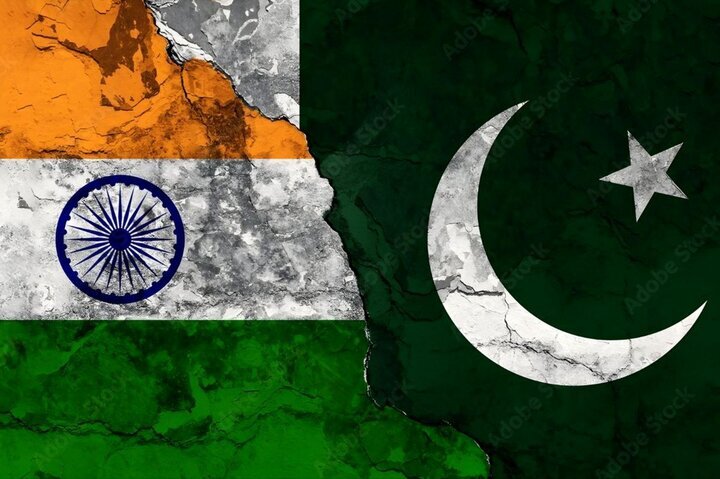China is New Delhi’s nightmare; the possibility of a full-scale war between India and Pakistan is slim.
Recent developments in the subcontinent of India and Pakistan have once again captured the world’s attention. The two countries, which have a long history of tensions and conflicts, have faced new challenges in recent years that not only affect their bilateral relations but could also affect the stability of the region and even beyond.
The Kashmir issue, which has always been one of the main points of disagreement between India and Pakistan, has now become a complex and multifaceted crisis. In addition, new geopolitical developments, including India’s military and economic cooperation with the United States, and its coincidence with internal tensions and terrorist attacks, have added to the dimensions of this crisis.
This situation has led to the formation of questions about the future of India-Pakistan relations and the role of global powers such as China and the United States in this equation.
In a conversation with Dr. Damla Çağla Bayram, a Turkish expert on Indian political issues, Mehr correspondent examined various aspects of these developments, including the reasons why the Kashmir issue remains unresolved, the impact of terrorist attacks on relations between the two countries, and the possible consequences of any military conflict.
The conversation is as follows:
Why has the Kashmir issue remained unresolved after all these years? Experts say that the current situation may remain a managed crisis, but the escalation of disputes over water and Kashmir has increased the possibility of a larger conflict. What is your opinion on this?
The reason why the Kashmir issue remains unresolved is that both sides claim ownership of the land and neither of them is willing to back down. The Kashmir issue is like a chronic disease that remains in people’s lives. When each side has the facts on the issue, reaching a solution does not seem possible. As a result, the current situation is more likely to remain a controlled crisis. Currently, there are small-scale skirmishes and diplomatic moves, and tensions are not expected to peak any further.
However, India may launch a targeted counter-attack in response to the terrorist attacks. It is likely that this counter-attack will take the form of a limited air strike, similar to the measures taken after the Pulwama attack in 2019. However, these measures do not seem to be carried out quickly and are still in the planning stages.
When the Kashmir issue comes up, the Indus water issue is also used as a geopolitical weapon. This issue alone does not become a war crisis, but together with the Kashmir issue, they fuel each other. India is currently in a superior position regarding the Indus water, while Pakistan is at a disadvantage. The source of the Indus water begins in Indian territory, and its direction of flow is towards Pakistan. India has built many dams over the year,s and its policies towards the waters of the Indus have led to changes in the flow and direction of the water that Pakistan will not be happy with. Thus, the water problem will expand over time and is likely to remain unresolved, fueled as a parallel problem to Kashmir.
Despite two full-scale wars in 1965 and 1971 and smaller conflicts such as Kargil, the Shimla Agreement has remained valid. But many people know little about the details of the agreement. The truth is that there is no waiver clause in the agreement, and the agreement can be amended. However, neither party has the right to amend or terminate the agreement on its own. Therefore, the decision of the Indian government to suspend the agreement has no legal basis, as no clause allows either country to do so. If Pakistan were to refer the matter to the International Court of Justice, India would be proven to be in default.
The Shimla Agreement clearly states that both countries will respect each other’s security and territorial integrity and resolve issues peacefully. Of course, the Indus water issue does not only involve India and Pakistan, but also China and Afghanistan. Tensions between these countries are already ongoing. India’s use of the Indus water as a weapon against Pakistan would legitimize China’s ability to use Tibetan waters like the Brahmaputra and the Mekong. Restricting water to another country could be seen as a war crime, and India could actually affect only a small portion of the water that currently flows to Pakistan. To do so, India would have to build huge dams and make significant investments.
If India starts building the infrastructure to commit such war crimes, it would be positioning itself as a negative figure in the region. But the Kashmir issue does not only involve India and Pakistan, but also China, meaning that there are some parts of Kashmir where China has sovereignty. China, which wants moderation on both sides, is more concerned about its partnership with Pakistan and the fate of the economic corridor project in these territories. The crisis between India and Pakistan will also pose a great risk to this corridor.

